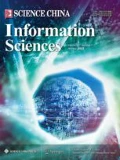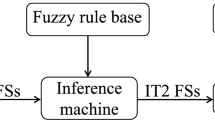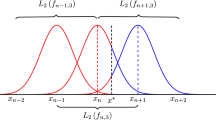Abstract
In this paper, we introduce polygonal fuzzy numbers to overcome the operational complexity of ordinary fuzzy numbers, and obtain two important inequalities by taking advantage of their fine properties. By presenting an actual example, we demonstrate that the approximation capability of polygonal fuzzy numbers is efficient. Furthermore, the concepts of K-quasi-additive integrals and K-integral norms are introduced. Whenever the polygonal fuzzy numbers space satisfies separability, the density problems for several functions spaces can be studied, by means of fuzzy-valued simple functions and fuzzy-valued Bernstein polynomials. We establish that the class of the integrally-bounded fuzzy-valued functions spans a complete and separable metric space in the K-integral norms. Finally, in the sense of K-integral norms, the universal approximation of fourlayer regular polygonal fuzzy neural networks for fuzzy-valued simple functions is discussed. Furthermore, we show that this type of networks also possesses universal approximation for the class of integrally-bounded fuzzyvalued functions. This result indicates that the approximation capability which regular polygonal fuzzy neural networks for continuous fuzzy systems can be extended as for general integrable systems.
Similar content being viewed by others
References
Buckley J J, Hayashi Y. Can fuzzy neural nets approximate continuous fuzzy functions? Fuzzy Sets Syst, 1994, 61: 43–51
Buckley J J, Hayashi Y. Can neural nets be universal approximators for fuzzy functions? Fuzzy Sets Syst, 1999, 101: 323–330
Feuring T, Lippe W M. The fuzzy neural network approximation lemma, Fuzzy Sets Syst, 1999, 102: 227–237
Chung F L, Duan J C. On multistage fuzzy neural network modeling. IEEE Trans Fuzzy Syst, 2000, 8: 125–142
Li H X. Output-back fuzzy logic systems and equivalence with feedback neural networks. Chin Sci Bull, 2000, 45: 592–596
Liu P Y, Wang H. Approximation capability of regular fuzzy neural networks to continuous fuzzy functions. Sci China Ser E Tech Sci, 1999, 29: 54–60
Liu P Y. Approximation analyses for fuzzy valued functions in L 1(µ) by regular fuzzy neural networks. J Electron Sci, 2000, 17: 132–138
Liu P Y. A new fuzzy neural network and its approximation capability. Sci China Ser F Inf Sci, 2002, 32: 76–86
Liu P Y. Universal approximation of continuous analyses fuzzy valued functions by multi-layer regular fuzzy neural networks. Fuzzy Sets Syst, 2001, 119: 313–320
Liu P Y. Analysis of approximation of continuous fuzzy function by multivariate fuzzy polynomial. Fuzzy Sets Syst, 2002, 127: 299–313
Zhao F X, Li H X. Approximation of regular fuzzy neural networks in sense integral norm (in Chinese). Prog Nat Sci, 2004, 14: 1025–1031
Zhao F X, Li H X. Universal approximation of regular fuzzy neural networks to Sugeno-integrable functions (in Chinese). Acta Mathematicae Applicatae Sinica, 2006, 29: 39–45
Sugeno M, Murofushi T. Pseudo-additive measures and integrals. J Math Anal Appl, 1987, 122: 197–222
Jiang X Z. tK-integral and Kt-integral (in Chinese). J Sichuan Normal University, 1993, 16: 31–39
Wang G J, Li X P. Absolute continuity of K-quasi-additive fuzzy integrals (in Chinese). J Sichuan Normal University, 1998, 21: 251–255
Wang G J, Li X P. K-quasi-additive fuzzy integrals of set-valued mappings. Progress Nat Sci, 2006, 16: 125–132
Wang G J, Li X P. K-quasi-additive fuzzy number valued integral and its convergence. Adv Mathematics, 2006, 35: 109–119
Wang G J, Li X P. The pseudo-autocontinuity and structural characteristics of K-quasi-additive fuzzy number valued integrals (in Chinese). Acta Mathematicae Applicatae Sinica, 2010, 33: 66–77
Diamond P, Kloeden P. Metric Spaces of Fuzzy Sets. Singapore: World Scientific Press, 1994
Li H X, Yu X H, Wang J Y, et al. Norm and classification of fuzzy systems. Sci China Inf Sci, 2010, 40: 1596–1610
Author information
Authors and Affiliations
Corresponding author
Rights and permissions
About this article
Cite this article
Wang, G., Li, X. Universal approximation of polygonal fuzzy neural networks in sense of K-integral norms. Sci. China Inf. Sci. 54, 2307–2323 (2011). https://doi.org/10.1007/s11432-011-4364-y
Received:
Accepted:
Published:
Issue Date:
DOI: https://doi.org/10.1007/s11432-011-4364-y




